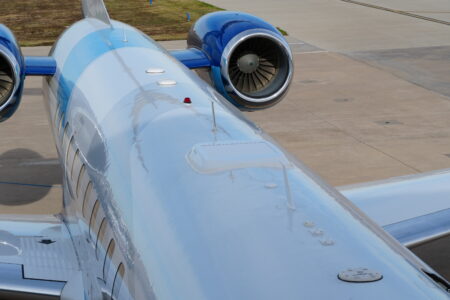Cortec Corporation has published an aircraft preservation guide that uses the company’s Vapor Phase Corrosion Inhibitor technology for aircraft owners seeking information about aircraft storage the Covid-19 lockdown.
Good preservation is vital in avoiding further damage and keep aircraft ready to put back into the air on short notice. Vapor Phase Corrosion Inhibitor (VpCI) technology works by forming a corrosion inhibiting layer on metal surfaces to which it is applied and diffuses through the air to deliver protection to all exposed metal surfaces within a void space, even those to which they are not directly applied.
This vapor phase action is particularly useful for airplane internals such as cockpits, baggage compartments, passenger seating areas, and electronic systems, where VpCI molecules can be used to condition entire enclosures with a protective atmosphere. VpCI preservation does not require continuous monitoring and in many cases eliminates or reduces the need to remove preservation materials upon commissioning.
The aircraft preservation guide recommends externally washing down jets and helicopters with VpCI-415 prior to layup. This flash-corrosion inhibiting cleaner conforms to Boeing D6-17487 Rev P and is also a MIL-PRF-87937D Qualified cleaner/degreaser. After cleaning, VpCI additives should be added to fuel tanks, gearboxes, and hydraulic systems.

VpCI-111 Emitters, VpCI-308 Pouches, and VpCI-337 fogging fluid should be applied in electronic systems and engines, respectively. Some components, such as engines, may also benefit from shrink-wrapping in VpCI-126 HP UV, with VpCI dosed into the flow path. A temporary coating such as VpCI-369D will provide lubrication and corrosion protection for moveable joints such as wing flaps, ailerons, door hinges, and landing gear.
Cortec also suggests biological odor control solutions in the form of Bionetix International’s ECO-SEPT and PORTA-TREAT for toilet and holding tank systems.
To view Cortec’s “Long-Term Storage of Modern Aircraft” guide here.





